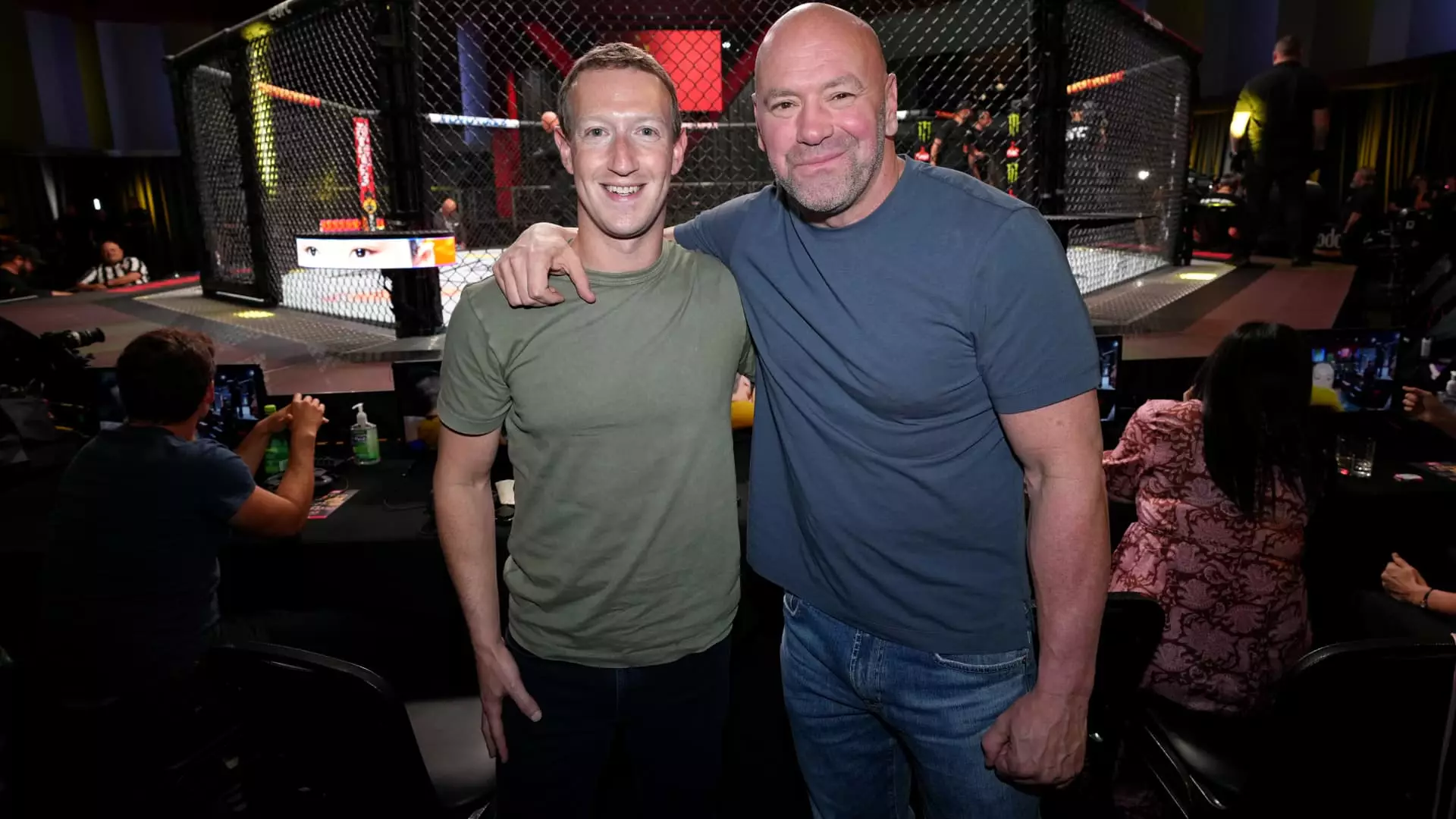In a bold move that merges the worlds of combat sports and technology, Dana White, the longtime CEO of the Ultimate Fighting Championship (UFC), has recently joined the board of Meta, the parent company of Facebook. This decision comes at a particularly poignant time, just weeks ahead of the impending Trump administration. White’s appointment raises questions about the dynamics of leadership, loyalty, and the convergence of different industries that are traditionally seen as distinct.
The UFC has evolved under White’s guidance since he took the helm in 2001, transforming it into a renowned powerhouse in the sports industry, with formidable brand recognition and rapid financial growth. Mark Zuckerberg, the CEO of Meta, acknowledged White’s achievements in a Facebook post, stating, “I’ve admired him as an entrepreneur and his ability to build such a beloved brand.” This endorsement reflects not only White’s influence in the sports world but also the technological titan’s interest in the sporting domain. Zuckerberg’s growing interest in mixed martial arts (MMA)—evidenced by his participation in training and attendance at numerous UFC events—illustrates a personal connection that transcends business.
The decision for White to join Meta’s board, notably during a politically charged period, adds layers of complexity to this collaboration. White and Donald Trump share a long-standing friendship, which has been evidenced publicly by White’s appearance alongside Trump during his election night celebrations. During this event, White praised Trump’s resilience and tenacity, reinforcing a connection that may influence business decisions at Meta.
Moreover, the strategic timing of White’s new role coincides with Meta’s $1 million donation to Trump’s inaugural fund—an overt act that could be interpreted as a political gesture. It emphasizes how deeply intertwined sports, technology, and politics have become within America’s current landscape, challenging the notion of corporate neutrality. This relationship signals a growing acceptance of cross-industry partnerships that may reshape public perception and potential business directions.
Despite the accolades, White’s career has not been without its controversies. Notably, videos released in 2021 depicting him in a domestic violence incident drew widespread condemnation. White’s subsequent public apology reflects an attempt to manage a personal and public relations crisis that could have disastrous implications not only for his career but also for the organizations associated with him. Such events have raised questions regarding the moral fabric of leadership—should influential figures in business and sports be held to higher standards, given their public platforms?
This incident highlights the precarious balance between personal conduct and professional success, particularly in industries where personal branding is paramount. White’s ability to rebound from this controversy might demonstrate resilience, but it also highlights the scrutiny that comes with leadership roles, especially when intertwined with other powerful figures and companies.
The addition of Dana White is not the only shift occurring within Meta’s executive structure. Alongside names like John Elkann, an influential figure in the automotive industry, and Charlie Songhurst, a tech strategist with a pedigree from Microsoft, White’s presence on the board suggests a diversifying portfolio of expertise. Zuckerberg envisions these appointments as critical to navigating future technological corridors, including artificial intelligence and wearables. The vision laid out by Zuckerberg indicates that Meta is not just resting on its laurels but is actively engaging with leaders who bring varied perspectives.
Yet, how effective these leaders will be in pushing Meta toward its ambitious tech goals amid the ensuing complexities of industry integration and political entanglements remains uncertain. This evolving narrative, woven from sports, technology, and politics, may redefine the way companies approach strategic partnerships.
As Dana White steps into this new role, the unfolding chapters of Meta and the UFC suggest we are entering uncharted waters where sports and technology may increasingly influence one another. Will this collaboration result in innovative initiatives that redefine social media interactions, or will it merely amplify existing challenges? With Zuckerberg leading a board that merges diverse expertise, the coming years will reveal the true impact of this unlikely alliance. Only time will tell how these dynamics will shape the future of both Meta and the sports landscape at large.


Leave a Reply